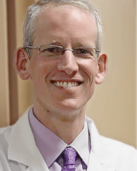
Dr. Jeffrey A. Linder
Chief of General Internal Medicine and Geriatrics in the Department of Medicine
Michael A. Gertz Professor of Medicine
Update as of March 23: Over the weekend, President Trump tweeted that when Hydroxychloroquine, a common antimalarial, is combined with the antibiotic azithromycin, it could "have a real chance to be one of the biggest game changers in the history of medicine," and should be used "immediately" to treat patients with COVID-19.
Northwestern Medicine primary care physician Dr. Jeffrey Linder, who does extensive research on the United States’ over-prescription of antibiotics, said "it is irresponsible of the President to be touting unproven medical treatments that have potentially serious side effects, like causing heart problems."
Linder is available to speak to media about danger of touting such an unproven medical treatment. Reporters interested in interviewing him should contact Kristin Samuelson at ksamuelson@northwestern.edu or by phone (mobile) 847-769-6596.
Linder also shared his thoughts in the following media advisory, sent March 13:
As doctors and patients increasingly rely on virtual doctor visits to help mitigate the spread of coronavirus, Northwestern Medicine primary care physician Dr. Jeffrey Linder is available to speak to media about the potential increase in antibiotic over-prescription that could result from these visits.
Indiscriminate use of antibiotics increases the prevalence of antibiotic-resistant bacteria, which renders the antibiotics ineffective.
“It’s definitely a concern that people might be getting prescriptions for medicines that won’t help with coronavirus, which is possibly exposing them to other problems and increasing the typical concerns of over-prescription of antibiotic medicine,” said Linder, chief of general internal medicine and geriatrics in the department of medicine at Northwestern University Feinberg School of Medicine.
“This happens when we’re not in the midst of a viral global pandemic. People call with respiratory concerns and end up getting an antibiotic prescription maybe they didn’t really need. The problem could easily get worse,” said Linder, chief of general internal medicine and geriatrics in the department of medicine at Northwestern University Feinberg School of Medicine.
Linder does extensive research on the United States’ over-prescription of antibiotics, most recently finding that 45% of Medicaid antibiotics were prescribed without any clear rationale. Additionally, he can speak to reporters about general coronavirus questions as they pertain to primary care visits. Reporters interested in interviewing him should contact Kristin Samuelson at ksamuelson@northwestern.edu or by phone (mobile) 847-769-6596.
“At this point, we’re trying to prevent what we think is community spread. We’re advising people to stay home if they have mild or moderate symptoms and are doing well.
“For people over 60 or who have comorbid illnesses – chronic lung, cardiac or kidney disease, or have weakened immune systems -- the risk-to-benefit ratio of making a trip out into the community has changed radically in the last three days. We’re doing more video calls, phone calls and visits over e-mail.”
“Until things change – which could be days – if you’re young and healthy and have respiratory symptoms, the best move is to presume you have COVID-19. The vast majority of young people who have it recover from it, so we’re recommending they stay away from people. If they’re doing fine with the symptoms, there’s no early treatment and nothing they can do for you at the hospital that you can’t do at home. We don’t want someone who’s young and healthy and has symptoms traveling through the community. But if you start having trouble breathing, persistent pain or pressure in the chest, new confusion, then come to the emergency room.”

Chief of General Internal Medicine and Geriatrics in the Department of Medicine
Michael A. Gertz Professor of Medicine